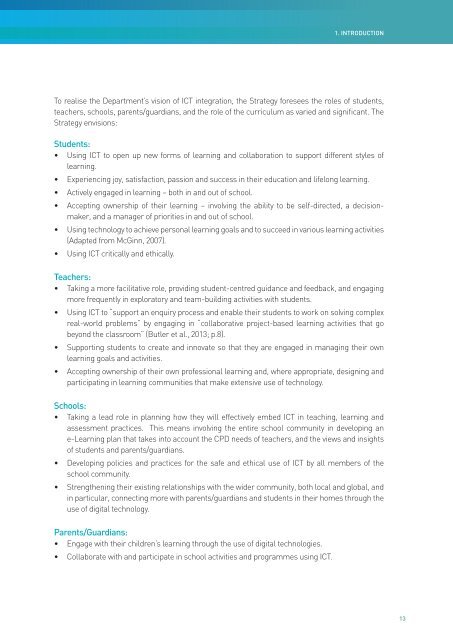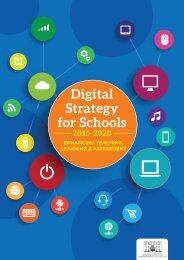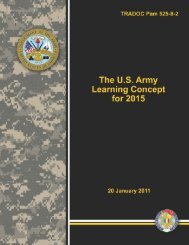Digital Strategy for Schools
TKmc0
TKmc0
You also want an ePaper? Increase the reach of your titles
YUMPU automatically turns print PDFs into web optimized ePapers that Google loves.
1. INTRODUCTION<br />
To realise the Department’s vision of ICT integration, the <strong>Strategy</strong> <strong>for</strong>esees the roles of students,<br />
teachers, schools, parents/guardians, and the role of the curriculum as varied and significant. The<br />
<strong>Strategy</strong> envisions:<br />
Students:<br />
• Using ICT to open up new <strong>for</strong>ms of learning and collaboration to support different styles of<br />
learning.<br />
• Experiencing joy, satisfaction, passion and success in their education and lifelong learning.<br />
• Actively engaged in learning – both in and out of school.<br />
• Accepting ownership of their learning – involving the ability to be self-directed, a decisionmaker,<br />
and a manager of priorities in and out of school.<br />
• Using technology to achieve personal learning goals and to succeed in various learning activities<br />
(Adapted from McGinn, 2007).<br />
• Using ICT critically and ethically.<br />
Teachers:<br />
• Taking a more facilitative role, providing student-centred guidance and feedback, and engaging<br />
more frequently in exploratory and team-building activities with students.<br />
• Using ICT to “support an enquiry process and enable their students to work on solving complex<br />
real-world problems” by engaging in “collaborative project-based learning activities that go<br />
beyond the classroom” (Butler et al., 2013; p.8).<br />
• Supporting students to create and innovate so that they are engaged in managing their own<br />
learning goals and activities.<br />
• Accepting ownership of their own professional learning and, where appropriate, designing and<br />
participating in learning communities that make extensive use of technology.<br />
<strong>Schools</strong>:<br />
• Taking a lead role in planning how they will effectively embed ICT in teaching, learning and<br />
assessment practices. This means involving the entire school community in developing an<br />
e-Learning plan that takes into account the CPD needs of teachers, and the views and insights<br />
of students and parents/guardians.<br />
• Developing policies and practices <strong>for</strong> the safe and ethical use of ICT by all members of the<br />
school community.<br />
• Strengthening their existing relationships with the wider community, both local and global, and<br />
in particular, connecting more with parents/guardians and students in their homes through the<br />
use of digital technology.<br />
Parents/Guardians:<br />
• Engage with their children’s learning through the use of digital technologies.<br />
• Collaborate with and participate in school activities and programmes using ICT.<br />
13




